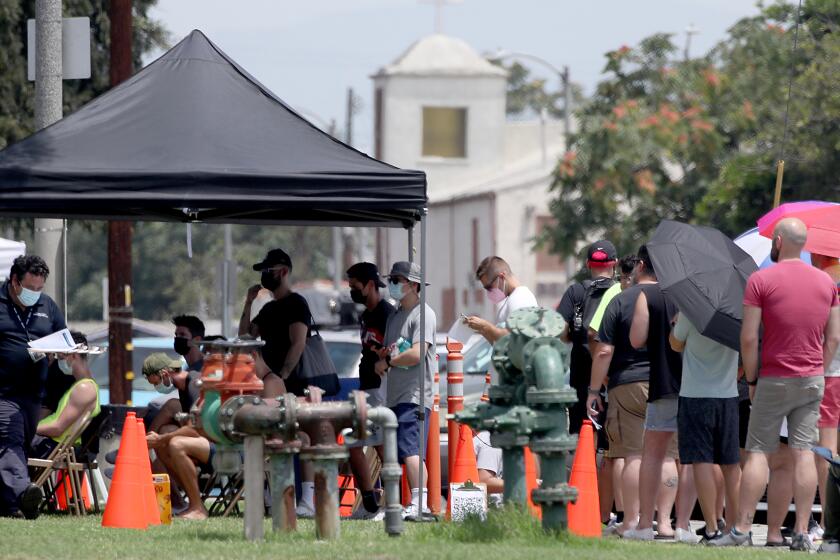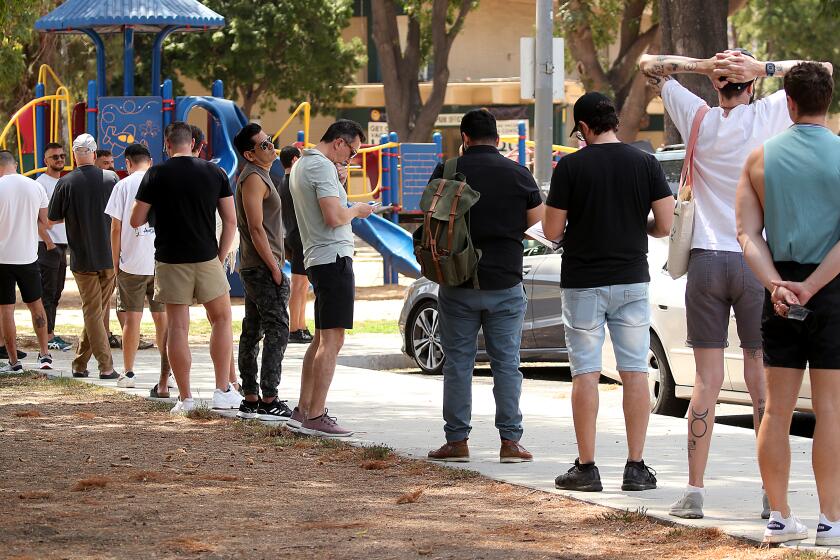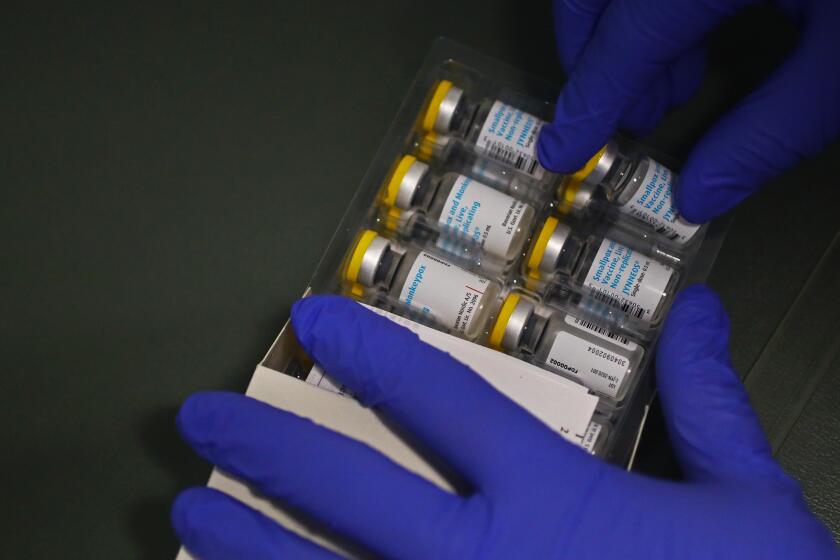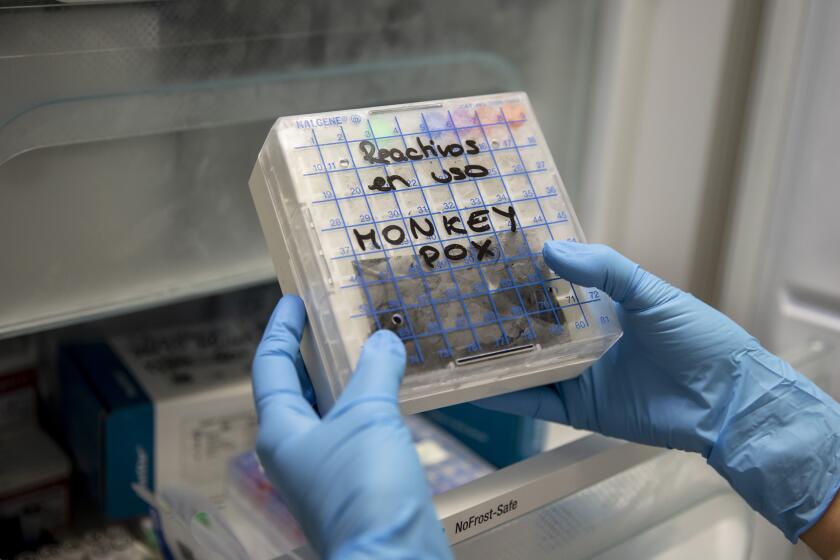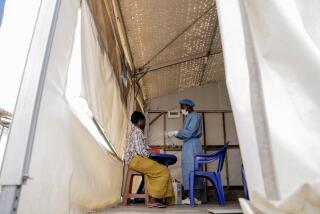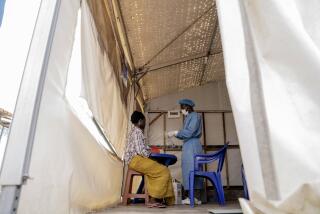World Health Organization declares monkeypox a global emergency
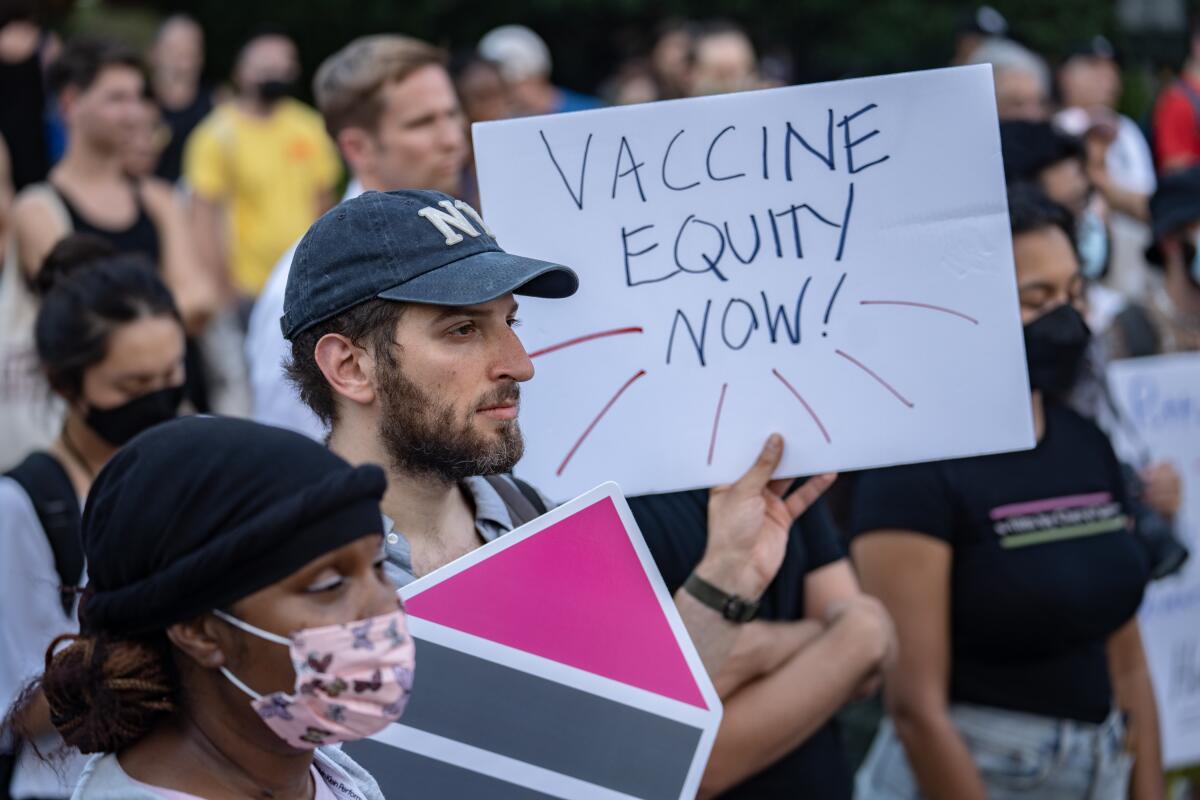
LONDON — The expanding monkeypox outbreak in more than 70 countries is an “extraordinary” situation that qualifies as a global emergency, the World Health Organization chief said Saturday, a declaration that could spur further investment in treating the once-rare disease and worsen the scramble for scarce vaccines.
A global emergency is the WHO’s highest level of alert but the designation does not necessarily mean a disease is particularly transmissible or lethal. Similar declarations were made for the Zika virus in 2016 in Latin America and the ongoing effort to eradicate polio, in addition to the COVID-19 pandemic and the 2014 Ebola outbreak in West Africa.
WHO Director-General Tedros Adhanom Ghebreyesus made the decision on calling monkeypox a global emergency despite a lack of consensus among experts on the United Nations health agency’s emergency committee, saying he acted as “a tiebreaker.” It was the first time a U.N. health agency chief has unilaterally made such a decision without an expert consensus recommendation.
“We have an outbreak that has spread around the world rapidly through new modes of transmission, about which we understand too little,” Tedros said. “I know this has not been an easy or straightforward process and that there are divergent views among the members” of the committee.
The WHO’s emergencies chief, Dr. Michael Ryan, said the director-general decided to declare monkeypox a global emergency to ensure the world takes the current outbreaks seriously.
Both children were likely infected from someone in their household, public health officials said.
Although monkeypox has been established in parts of central and West Africa for decades, it was not known to spark large outbreaks beyond the continent or to spread widely among people until May, when authorities detected dozens of epidemics in Europe, North America and elsewhere.
Last month, the WHO’s expert committee said the monkeypox outbreak did not yet amount to an international emergency, but the panel convened this week to reevaluate the situation.
According to the U.S. Centers for Disease Control and Prevention, more than 16,000 cases of monkeypox have been reported in 74 countries since about May. To date, monkeypox deaths have been reported only in Africa, where a more dangerous version of the virus is spreading, mainly in Nigeria and Congo.
Some are asking: ‘Would monkeypox have received a stronger response if it were not primarily affecting queer folks?’
In Africa, monkeypox mainly spreads to people by infected wild animals such as rodents in limited outbreaks that typically have not crossed borders. But in Europe, North America and elsewhere, monkeypox is spreading among people with no links to animals or recent travel to Africa.
The WHO’s top monkeypox expert, Dr. Rosamund Lewis, said this week that 99% of all the monkeypox cases beyond Africa were in men and that of those, 98% involved men who have sex with men. Experts suspect the monkeypox outbreaks in Europe and North America were spread via sex at two raves in Belgium and Spain.
“Although I am declaring a public health emergency of international concern for the moment, this is an outbreak that is concentrated among men who have sex with men, especially those with multiple sexual partners,” Tedros said. “That means that this is an outbreak that can be stopped with the right strategies in the right groups.”
Britain recently downgraded its assessment of monkeypox after seeing no signs of widespread transmission beyond men who have sex with other men and noting the disease does not spread easily or cause severe illness.
Before Saturday’s announcement, Michael Head, a senior research fellow in global health at Southampton University, said it was surprising the WHO hadn’t already declared monkeypox a global emergency, explaining that the conditions were arguably met weeks ago.
Some experts had questioned whether such a declaration would help, arguing the disease isn’t severe enough to warrant the attention and that rich countries battling monkeypox already have the funds to do so. Most people recover without needing medical attention, although the lesions may be painful.
People who work at commercial sex venues and those with diagnoses of certain sexually transmitted diseases are now eligible to get the monkeypox vaccine.
Head said the WHO’s emergency declaration could help donors like the World Bank make funds available to stop the outbreaks in the West and in Africa.
In the U.S., some experts have speculated whether monkeypox might be on the verge of becoming an entrenched sexually transmitted disease, like gonorrhea, herpes and HIV.
“The bottom line is we’ve seen a shift in the epidemiology of monkeypox where there’s now widespread, unexpected transmission,” said Dr. Albert Ko, a professor of public health and epidemiology at Yale University. “There are some genetic mutations in the virus that suggest why that may be happening, but we do need a globally coordinated response to get it under control.”
Ko called for testing to be immediately scaled up, saying that like the early days of COVID-19, there are significant gaps in surveillance.
“The cases we are seeing are just the tip of the iceberg,” he said. “The window has probably closed for us to quickly stop the outbreaks in Europe and the U.S., but it’s not too late to stop monkeypox from causing huge damage to poorer countries without the resources to handle it.”
Some in the LGBTQ community are worried that the vaccine shortage will allow for spread of monkeypox.
Tedros called for the world to “act together in solidarity” regarding distribution of treatments, tests and vaccines. The U.N. agency has previously said it’s working to create a vaccine-sharing mechanism for the most-affected countries. And unlike the numerous companies that made COVID-19 vaccines, there is only one maker of the vaccine used against monkeypox, Denmark’s Bavarian Nordic.
Dr. Placide Mbala, a virologist who directs the global health department at Congo’s Institute of National Biomedical Research, said he hoped any global efforts to stop monkeypox would be equitable. Although countries including Britain, Canada, Germany and the U.S. have ordered millions of vaccine doses, none has gone to Africa.
“The solution needs to be global,” Mbala said, adding that any vaccines sent to Africa would be used to target those at highest risk, like hunters in rural areas.
“Vaccination in the West might help stop the outbreak there, but there will still be cases in Africa,” he said. “Unless the problem is solved here, the risk to the rest of the world will remain.”
More to Read
Sign up for Essential California
The most important California stories and recommendations in your inbox every morning.
You may occasionally receive promotional content from the Los Angeles Times.
